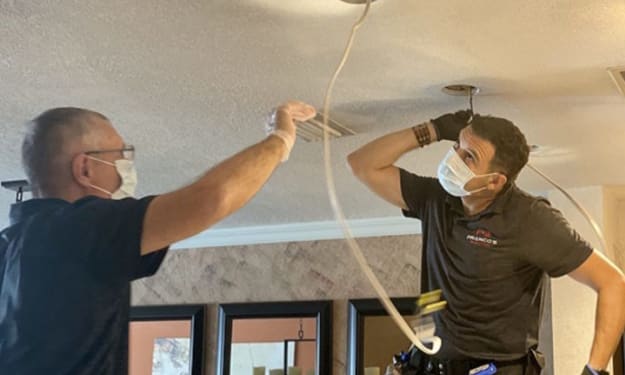What is the Declaration of Trust Deed and, what it does?
When cannot actual ownership of the property be registered?

Declaration of trust
When two or more people buy a house or apartment together, they may want their legal relationship as owner to become co-tenants.
You can provide a declaration of trust as an act (a kind of legal agreement) to find out how the proceeds from the sale of the property are distributed, in proportion to the purchase cost at the time of purchase and over the life of the property.
What is a trust declaration?
A declaration of trust allows you to indicate how a property is in a situation where you cannot or do not wish to register that actually belongs to it, on the land registry.
The document builds trust by appointing trustees to own the property for the benefit of the beneficiary.
A trustee is simply the person responsible for safeguarding trust money or property. Under the Trustees Act 2000, trustees are expected to act in a manner consistent with the responsibilities associated with the position and that protect the interests of the beneficiary.
What does a trust declaration do?
Property ownership is recorded on the ownership document and copies of these documents are kept in a public register in the land registry.
The declarations of trust supersede the title deeds. This confirms who the real owners of the property are and in what proportion of each, regardless of the entry in the title deed.
This allows owners who are not registered in the land registration act to be legally recognized as owners and receive the same legal protection as other owners.
Confidence statements can be stored in the land register so that they become public. So that the prospective buyer can find out whom he is buying from.
When cannot actual ownership of the property be registered?
Some situations in which real estate may not be recorded in notarized documents include:
• When someone buys property with the help of a mortgage and part of the deposit or principal to secure the loan is paid by another party
• If two people want to buy property together with collateral, but with different mortgage terms, one of them cannot be the other party.
• if several parties wish to own the property as a co-owner with different shares
The most common example of when a trust lease is used is when a male or female adult borrows money from their parents as collateral for the initial home.
Parents may already have a mortgage, and the mortgage terms prevent them from borrowing under another mortgage. Therefore, sons or daughters must apply for a mortgage for their own home.
However, parents want guarantees that if the house is sold, they will get the security deposit which they borrow back. An agreement can be made to pay a portion of the property price increase as interest. You may want to make sure that your boyfriend, girlfriend, husband, wife, or partner has absolutely no right for the money they invest.
So, parents borrow money to guarantee their son or daughter. The son or daughter receives the mortgage and the title deed states that the son or daughter is the sole owner of the property (mortgage costs are also recorded). The parent and child make a statement of confidence stating the property and who will receive a share of the sale when the property is finally sold.
In legal jargon, the act of trust takes into account the parents' favorable interests in the property.
Steps you need to take while making a declaration of trust
The trust deed changes who uses the property, in other words who the real owner is. You have to register it in the land registry (so that it is registered in the public register). Change of ownership can be made in court.
Therefore, it must be checked first whether the declaration of trust is in the interest of all parties. The responsibility for maintaining property and paying back mortgages also changes proportionally.
The next question to consider is what each owner will have. The total property price will likely include purchase transaction costs, stamp duty, mortgage interest, and obvious repair or renovation possibilities. Your deals with other owners may result in you paying a proportion of them in excess of your share. The shares that you have identified in the trust agreement are the shares in which the proceeds from the sale will be distributed. If the property sells for less than the total cost, someone who finances the security deposit may not get back everything they invested.
You can write other matters on the trust document, such as how property repairs are paid for. However, since your deed will likely be registered and available for public review, you may not want to keep this type of agreement a secret. You can keep it in a different agreement between them.
A trust deed must be drawn up by the registered owner and with the knowledge and consent of all real owners. If the registered owner's consent is not granted, the action may be canceled and your registration may be fraudulent.
You can make a statement of belief at any time. This is usually done at the time the property is purchased so that the real owners never take the risk that their interest in the property cannot be explained by them.
About the Creator
Kalsoom Waqas
Qualified SEO professional and Digital Marketing Pro with solid experience in developing SEO campaigns, analytics, SERP monitoring, keyword research, website auditing , Site promotions, Email marketing, Business management and ASO






Comments
There are no comments for this story
Be the first to respond and start the conversation.